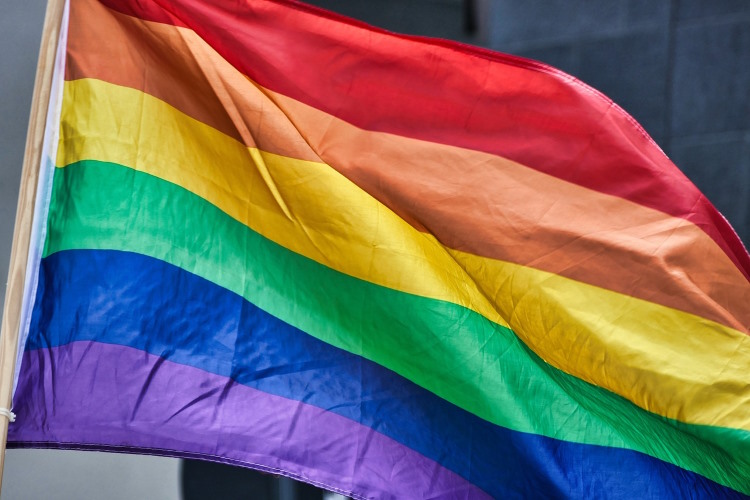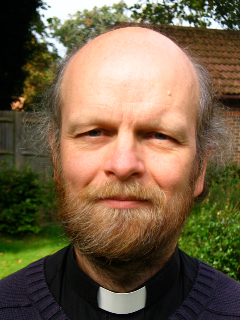Opinion Column

We are all unique individuals in Christ
In the light of recent Scottish legislation, regular contributor Andy Bryant questions whether there is too much emphasis on gender when establishing our identity.
“There is neither Jew nor Gentile, neither slave nor free, nor is there male and female, for you are all one in Christ Jesus.” Galations 3:28.
The Gender Recognition Reform (Scotland) Bill is proving controversial as it seeks to make it easier for individuals to change their gender. It may be a strange thing to say but my problem is that I do not think this legislation goes far enough. Bear with me, and this may be an idea too far, but I want to suggest that we need to stop registering anyone’s gender.
Yes, Genesis tells us we are created in the image of God – male and female he created them. While some will immediately want to remind me about essential biological differences this tells me nothing about what it means to be male or female.
I have never really understood what maleness is meant to be. The sheer range and diversity of what I have witnessed as expressions of maleness makes me wonder if as males of the species whether we have anything in common. A generalised concept of maleness does nothing to help me with any understanding of my identity.
By observation I suspect a similar comment could be made about femaleness. Simplistic statements about “all men” or “all women” always leave me profoundly uncomfortable and researchers always admit that there are, of course, exceptions, which rather undermines their original statement. I don’t know what it means to be male, I only know what it means to be Andy – and that is quite complicated enough.
Human beings seem to like to name and classify things. It is claimed that this is part of the way we get to know the world – more truthfully this has more to do with control than knowledge. This over simplistic male/female classification seems to have been endlessly used to enable men to exercise control over women - and take your pick for the reasons given to justify this.
In every sphere of human activity, including the Church, it has been used to hold women back and deny civilisation their gifts, talents and contributions. This same oppressive script is now being tragically played out in Afghanistan, although whilst this is much in the headlines, it is also true in many other countries.
Reducing people to binary categories, whether that be about gender, skin colour, religion, politics or anything, allows people to be reduced to objects and one half of the polarity to exercise unfair and inappropriate power over the other. My gender is not the primary thing I need you to know about me. I need you to get to know and respect me in all my diversity, and I need to do the same with you.
And somewhere in this discussion on gender someone will always mention toilets! In some debates this is then linked to women needing safe places. Personal safety should never be compromised but I would want to add that using certain male toilets can also make me feel quite vulnerable. Public toilets in this country are one of the most visible ways in which this binary categorisation is reinforced. Yet why do we persist in making this provision segregated? – a provision that routinely leads to a longer queue at the toilets labelled “women” than that labelled for “men”. Thankfully some new buildings are moving away from such segregated provision and providing everyone with a more private safe space for each individual. In addressing my bodily needs, I do not want to be herded together with others and forced to adopt a label that has limited relevance for the rest of my life.
In the face of the wonderful diversity of what it means to be human, to continue to divide everyone as either male or female seems increasingly ridiculous. Rather communities need to celebrate and affirm each individual’s unique identity – an identity which is so much richer and more colourful than a simple, and simplistic, binary choice between male and female.
In his letter to the Galatians, Paul reminds us that within the fellowship of faith there is no longer male or female, for we are all one in Christ Jesus. Our identity is in Christ, not in our gender. God has made us in our wonderful diversity, each of us unique in our identity – God knows us and loves us for who we are.
Each time I look at my fingerprints I am in awe that no other human being has the same print as me – I am a unique individual beloved of God. Why then do we feel the need to group and categorise people; can we not just accept them for who they are?
Pride remains my favourite day in the city of Norwich. The streets are full of people being fully and gloriously themselves. I am foolish enough to see in these celebrations a glimpse of the kingdom of God. Before God our individuality is something to be affirmed not labelled.
Perhaps I am flying this kite too high. Some will feel I have crossed a line, even lost the plot. But I will continue to resist unhelpful attempts to categorise and group people, and rather rejoice in the wonderful diversity that is humankind and, with Psalmist, praise God because both you and I are fearfully and wonderfully made.
Image by Talpa from Pixabay
 The Revd Andrew Bryant is the Canon for Mission and Pastoral Care at Norwich Cathedral. He was previously Team Rector of Portishead, Bristol, in the Diocese of Bath and Wells, and has served in parishes in the Guildford and Lichfield Dioceses, as well as working for twelve years with Kaleidoscope Theatre, a charity promoting integration through theatre for young adults with Down’s Syndrome.
The Revd Andrew Bryant is the Canon for Mission and Pastoral Care at Norwich Cathedral. He was previously Team Rector of Portishead, Bristol, in the Diocese of Bath and Wells, and has served in parishes in the Guildford and Lichfield Dioceses, as well as working for twelve years with Kaleidoscope Theatre, a charity promoting integration through theatre for young adults with Down’s Syndrome.
You can read Andrew's latest blog entry here and can follow him via his Twitter account @AndyBry3.
The views carried here are those of the author, not of Network Norwich and Norfolk, and are intended to stimulate good-natured and constructive debate between website users.
We welcome your thoughts and comments, posted below, upon the ideas expressed here.
Click here to read our forum and comment posting guidelines